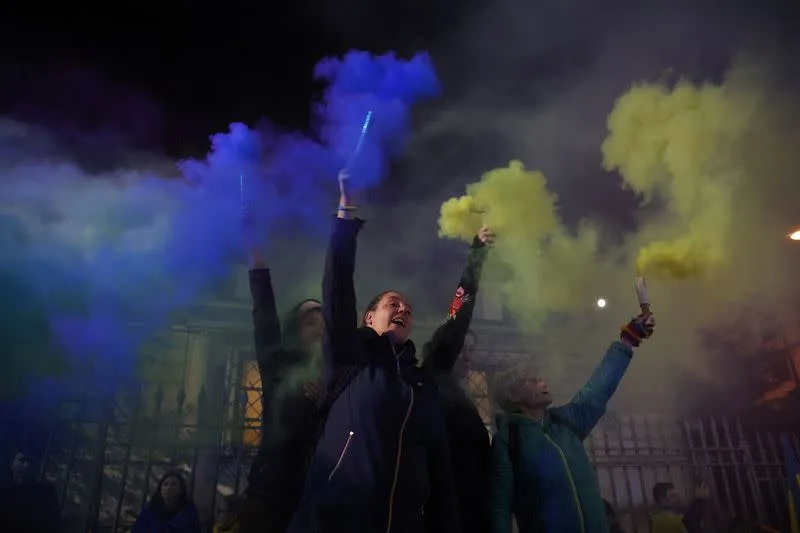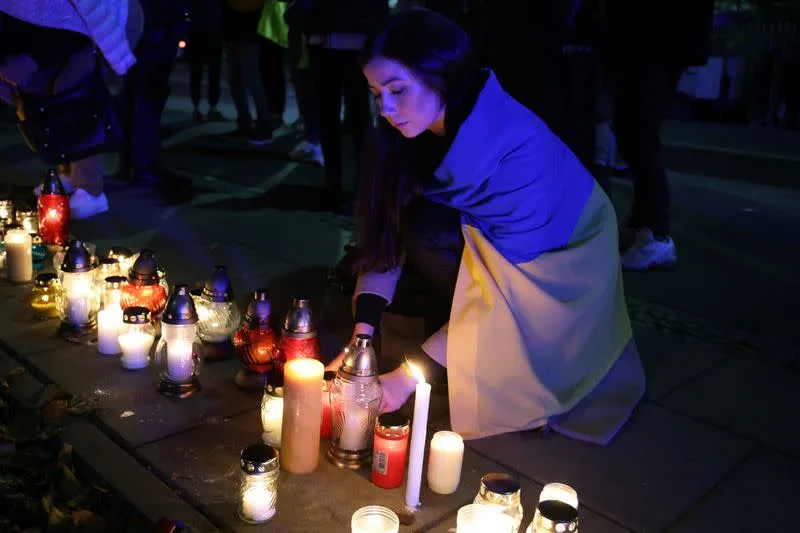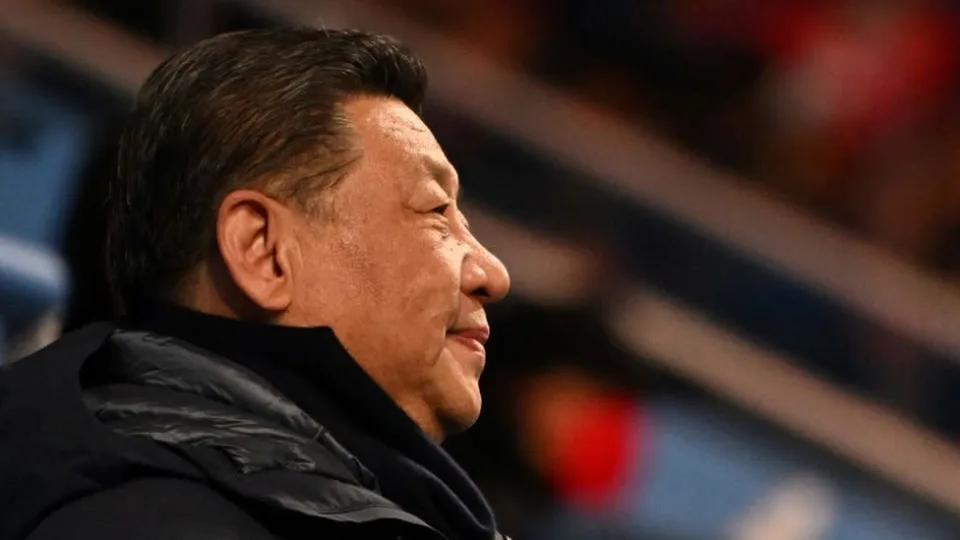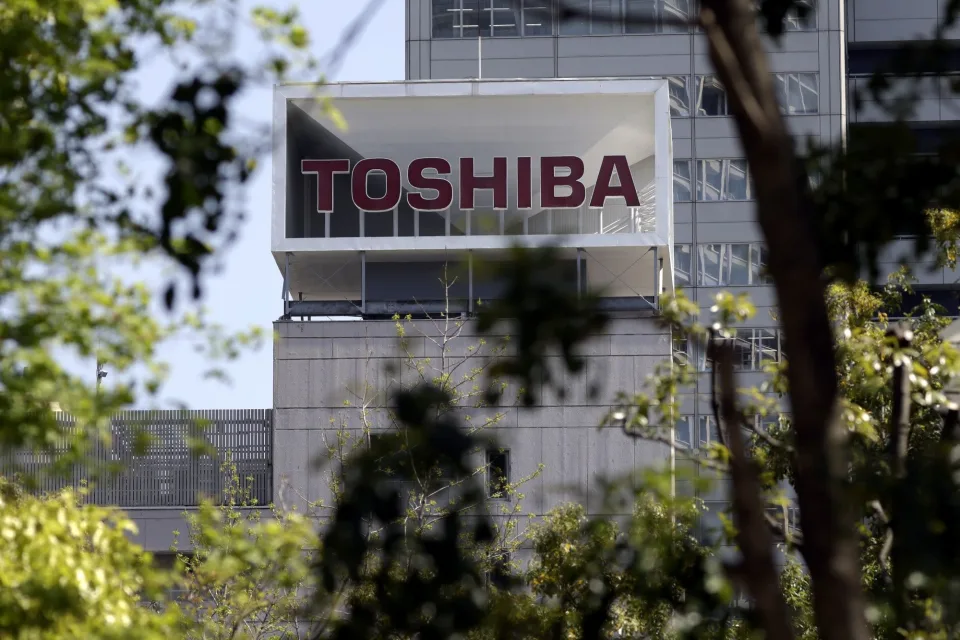Protestors in Warsaw accuse Russia of terrorism after missile strikes
2 min read
 Protestors in Warsaw accuse Russia of terrorism after missile strikes
Protestors in Warsaw accuse Russia of terrorism after missile strikes
Protestors gather outside the Russian embassy after missile strikes in Ukraine, in Warsaw
WARSAW (Reuters) – Hundreds of people protested outside the Russian embassy in Warsaw on Monday, calling for Russia to be designated a terrorist state and for its diplomats to be expelled after missile strikes killed at least 11 people in Ukrainian cities.
Opposition to the Russian invasion is intense in Poland, with the country becoming one of Kyiv’s staunchest supporters and taking in millions of refugees since the conflict started.
“All my family … stayed in Ukraine and I don’t know how I can support them,” said Valeria Horna, a student from Kyiv who lives in Warsaw. “That’s why I came to this meeting, simply to support Ukraine.”
Protestors, many draped in the Ukrainian flag, brandished placards with the protest’s slogan “Russia is a terrorist state.”
“I demand that Russia be designated a terrorist state because… it is bombarding the innocent civilian population,” said Monika Lowicka, a 40-year-old tax adviser.
A representative of the organisers, Euromaidan-Warszawa, put the number of protestors at around 2,000. A police spokesman declined to comment on how many people were present.
Russia calls its actions in Ukraine a “special operation” that it says is not designed to occupy territory but to destroy its southern neighbour’s military capabilities and capture what it regards as dangerous nationalists.
Russia rained cruise missiles on busy Ukrainian cities on Monday in what the United States called “horrific strikes,” killing civilians and knocking out power and heat with its most widespread air attacks since the start of the war.
President Vladimir Putin said he had ordered “massive” long range strikes after an attack on the bridge linking Russia to the annexed Crimean peninsula over the weekend, and threatened more strikes in future if Ukraine hits Russian territory.
(Reporting by Kacper Pempel in Warsaw; Writing by Alan Charlish; Editing by Matthew Lewis)






